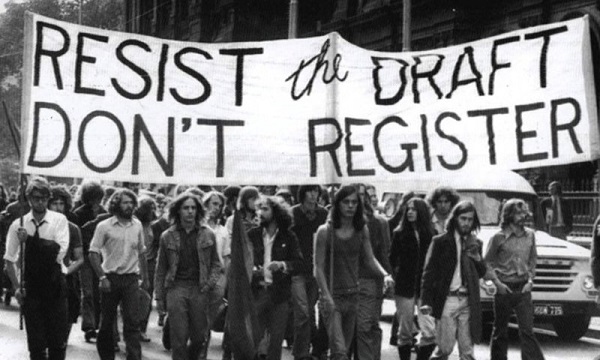Business
WEF panelist suggests COVID response accustomed people to the idea of CBDCs

Central Bank of Bahrain governor Khalid Humaidan
From LifeSiteNews
When asked how he would convince people that CBDCs would be a trusted medium of exchange, Bahrain’s central bank governor said that COVID made the digital transformation ‘something of a requirement’ that had ‘very little resistance.’
Central bank digital currencies (CBDCs) will hopefully replace physical cash and become fully digital, a central banker tells the World Economic Forum (WEF).
Speaking at the WEF Special Meeting on Global Collaboration, Growth and Energy Development on Sunday, Central Bank of Bahrain governor Khalid Humaidan told the panel “Open Forum: The Digital Currencies’ Opportunity in the Middle East” that one of the goals of CBDC was to replace cash, at least in Bahrain, and to go “one hundred percent digital.”
Humaidan likened physical cash to being an antiquated “analogue” technology and that CBDC was the digital solution that would hopefully replace cash:
"We're probably going to stop calling it central bank digital currency [CBDC]. It's going to be a digital form of cash, and at some point in time hopefully we will be able to be 100% digital": Central Bank of Bahrain Governor Khalid Humaidan to the WEF https://t.co/Pspr0M1Uuq pic.twitter.com/N5aOkCpzh1
— Tim Hinchliffe (@TimHinchliffe) April 29, 2024
“I thank this panel and this opportunity. It forced me to refine my thoughts and opinions where I’m at a place comfortably now that I’m ready to verbalize what I think about CBDC,” said Humaidan.
If we think cash is the analogue and digital currency is the form of digital – CBDC is the digital form of cash – today, clearly we’re in a hybrid situation; we’re using both.
We know in the past when it comes to cash, central bankers were very much in control with all aspects of cash, and now we’re comfortable to the point where the private sector plays a big role in the printing of the cash, in the distribution of the cash, and with the private sector we use interest rates to manage the supply of cash.
The same thing is likely to happen with CBDC. Yes, the central bank will have a role, but at some point in time – the same way we don’t call it ‘central bank cash’ – we’re probably going to stop calling it central bank digital currency.
“It’s going to be a digital form of the cash, and at some point in time hopefully we will be able to be one hundred percent digital,” he added.
When asked how he would convince people that CBDC would be a trusted medium of exchange, Bahrain’s central bank governor said that people were already used to it and that COVID made the digital transformation “necessary” and “something of a requirement” that had “very little resistance.”
"There's less use of cash […] The transition to fully digital is not going to be a stretch […] People are used to it […] Its adoption rates increased because of COVID […] There is very little resistance": Central Bank of Bahrain Governor Khalid Humaidan to the WEF on CBDC pic.twitter.com/zB7nJAi48G
— Tim Hinchliffe (@TimHinchliffe) April 29, 2024
“Right now, many of our payments are digital. The truth is, I said that we’re in a hybrid model; there’s less and less use of cash,” said Humaidan.
I think from predominantly digital with a little physical, I think the transition to fully digital is not going to be a stretch.
People are used to it, people have engaged in it and certain circumstances did help. Its adoption rates increased because of COVID.
“This is where contactless started to become something of a necessity, something of safety, something of a requirement, and because of that there is very little resistance; trust is already there,” he added.
"Is it [digital euro] going to be as private as cash? No. A digital currency will never be as anonymous and as protecting of privacy in many respects as cash, which is why cash will always be around": Christine Lagarde, BIS Innovation Summit, March 2023 #CBDC pic.twitter.com/BLMVOPax6a
— Tim Hinchliffe (@TimHinchliffe) April 11, 2023
Meanwhile, European Central Bank president Christine Lagarde has been going around the world telling people that the digital euro CBDC would not eliminate cash, and that cash would always be an option.
Speaking at the Bank for International Settlements (BIS) Innovation Summit in March 2023, Lagarde said that a digital currency will never be as anonymous as cash, and for that reason, cash will always be around.
“Is it [digital euro] going to be as private as cash? No,” she said.
A digital currency will never be as anonymous and as protecting of privacy in many respects as cash, which is why cash will always be around.
If people want to use cash in some countries or in some transactions, cash should be available.
“A digital currency is an alternative, is another means of payment and will not provide exactly the same level of privacy and anonymity as cash, but will be pretty close in terms of complete neutrality in relation to the data,” she added.
A WEF Agenda blog post from September, 2017, lists the “gradual obsolescence of paper currency” as being “characteristic of a well-designed CBDC.”
"You could have a potentially […] darker world where the government decides that [CBDC] can be used to purchase some things, but not other things that it deems less desirable like say ammunition, or drugs, or pornography, or something of the sort": Eswar Prasad, WEF #AMNC23 pic.twitter.com/KkWgaEWAR5
— Tim Hinchliffe (@TimHinchliffe) June 28, 2023
Last year at the WEF’s 14th Annual Meeting of the New Champions, aka “Summer Davos,” in Tianjing, China, Cornell University professor Eswar Prasad said that “we are at the cusp of physical currency essentially disappearing,” and that programmable CBDCs could take us to either a better or much darker place.
“If you think about the benefits of digital money, there are huge potential gains,” said Prasad, adding, “It’s not just about digital forms of digital currency; you can have programmability – units of central bank currency with expiry dates.
You could have […] a potentially better – or some people might say a darker world – where the government decides that units of central bank money can be used to purchase some things, but not other things that it deems less desirable like say ammunition, or drugs, or pornography, or something of the sort, and that is very powerful in terms of the use of a CBDC, and I think also extremely dangerous to central banks.
The WEF’s Special Meeting on Global Collaboration, Growth and Energy Development took place from April 27-29 in Riyadh, Saudi Arabia.
“Saudi Arabia’s absolute monarchy restricts almost all political rights and civil liberties,” according to D.C.-based NGO Freedom House.
In the kingdom, “No officials at the national level are elected,” and “the regime relies on pervasive surveillance, the criminalization of dissent, appeals to sectarianism and ethnicity, and public spending supported by oil revenues to maintain power.”
Reprinted with permission from The Sociable.
2025 Federal Election
The “Hardhat Vote” Has Embraced Pierre Poilievre

 David Krayden
David Krayden
Blue collar and unionized workers are supporting Pierre Poilievre and the CPC
When President Richard Nixon won a landslide in his 1972 reelection, he did so by broadening his own personal popularity and the appeal of the Republican Party to blue collar and unionized workers. It was called the hardhat vote and many working people embraced Nixon because he seemed to be talking the same language as they were. Nixon talked about law and order and getting tough on crime; safer streets and harsher penalties for serious crime. Although unionized workers had traditionally voted for the Democratic Party and seen the Republicans as the party of the wealthy, by 1972 the Democrats had moved far to the left on social issues and were completely out of touch with average Americans who saw Democratic presidential nominee Sen. George McGovern as being soft on crime and approving of the anarchy on the streets.
It’s precisely the language that Conservative Party of Canada leader Pierre Poilievere is speaking in the 2025 federal election. As support for the New Democratic Party has collapsed throughout the election campaign, don’t think most of it is going to the Liberal Party. Poilievre has been targeting blue collar workers for years with his emphasis on the trades and talking about middle class tax cuts and safe streets. A factory or construction worker is middle class and just want an affordable lifestyle for their families. They don’t have a lot of time for the woke underbelly of the Liberals or the NDP and are increasingly reluctant to support either party because both have appealed to elites.
Listen to Karl Lovett, the president of the Local 773 of the International Brotherhood of Electrical Workers, talk about Carney corruption and why he is supporting Poilievre and the CPC in 2025.
“Mark Carney also failed to pay $5 billion in Canadian taxes by hiding his company’s assets in Bermuda above a bike shop. Hard to believe that information comes from Canada’s NDP, or at least who is left of them, because the irony is, Mark Carney has eaten all those people alive. Even the mayor of Lima has warned Canadians not to vote for Mark Carney, and why for ripping him off the poorest of the poor people in Peru. That’s who he ripped off,” Lovett said.
“Listen, there are countless other outrageous examples proving that Mark Carney doesn’t give a damn about the Canadian working man. And now, as prime minister, which he’s not, Carney is promising to put carbon tax and tariff on the auto industry. It’s another rip-off screen that’s right. We’re getting punched by Trump on one side of the border, and Carney plans to punch us on this side of the border, also pretending it’s all about climate change, and now he’s made millions off the workers’ backs. He wants more than money. He wants more power. He wants all of the power to do whatever he wants to do. Mark Carney cannot be trusted with this power. Mark Carney cannot be trusted to protect workers,” Lovett continued.
The union leader told a cheering crowd that “Mark Carney is in it for himself, and when he loses this election, you can bet Mark Carney is going to leave Canada in a New York minute. But there’s hope, there’s hope, there’s our last hope. His name is Pierre Poilievere – the .only hope for Canadian workers. You see Mark Carney fooled Justin Trudeau. We can’t let him keep fooling us.”
“Local 773, which I represent, knows Pierre Poilievre very well. We can proudly tell you that Pierre has our back. Pierre has been putting Canadian people to work and Canadian workers. First, local 773 began working with Pierre Poilievre, the Conservative Member of Parliament Chris Lewis, some years ago, when it became all too clear that the Liberal Party had zero interest in helping out workers. Upon winning the leadership of the party, Pierre made Local 773 his very first priority, he came to my union hall. Pier made the Local 773 Visitor Training Center, and he met all our workers, and he made a pledge to me; he’s not going to turn his back on us, and I believe him,” Lovett said.
Toronto Sun columnist Joe Warmington agreed with me and you can hear that entire interview, below. “Labor wants to work, and they want to, you know, build things, and they want those good, paying jobs, and that’s what Poilievre has always been about, you know.”
“He wants more power. He wants all of the power to do whatever he wants to do. Mark Carney cannot be trusted with this power. Mark Carney cannot be trusted to protect workers,”
“Again, it’s hard to know, but I always felt … and I still think that Poilievre is going to pull this off because of these reasons that you’ve raised today, I never really bought into and again, I’m just one person’s opinion, and I go on the ground. In the air, the polls are saying, I know there’s this main street poll today, maybe it’ll swing differently. But in the air, it says one thing, and on the ground, it says another thing. And that clip you just showed, that’s the ground, that’s where the workers are, that’s where the families are.”
2025 Federal Election
Poilievre will cancel Mark Carney’s new Liberal packaging law and scrap the Liberal plastic ban!

From Conservative Party Communications
Conservative Leader Pierre Poilievre promised today that a new Conservative government will stop Mark Carney’s proposed Liberal food tax and scrap the existing Liberal plastic ban. Poilievre will:
- Stop proposed new labelling and packaging requirements that will raise the cost of fresh produce by as much as 34% and cost the average Canadian household an additional $400 each year.
- Scrap the Liberal plastics ban, including the ban on straws, grocery bags, food containers and cutlery, and other single-use plastics, letting consumers and businesses choose what works for them.
- Protect restaurants, grocers, and low-income Canadians from one-size-fits-all packaging rules that disproportionately affect those who can least afford it.
“After the Lost Liberal Decade, many Canadians can barely afford to put food on the table. And now Mark Carney and the Liberals want to make it even harder with a new food packaging law that will raise the price of food–again,” said Poilievre. “A new Conservative government will keep food prices down by scrapping the Liberal plastic ban and stopping Carney’s new Liberal food tax.”
After a decade of out-of-control spending and massive tax increases, families are spending $800 more on food this year than they did in 2024, and food banks had to handle a record two million visits in a single month. In Montreal, 44 percent of CEGEP students are experiencing some form of food insecurity, while places like Hawkesbury, Kingston, Toronto and Mississauga have all declared food insecurity emergencies.
And food prices are still rocketing upwards, surging by 3.2% over the last year, with no end in sight. In the last month alone, food inflation increased by 1.9 percentage points—the largest monthly jump in food prices in decades.
As if this wasn’t bad enough, Liberals have made life even more expensive and inconvenient for Canadians by banning plastics – including everything from straws to bags to food packaging. The current Liberal ban on single-use plastics will cost Canadians $1.3 billion dollars over the next decade.

Now Mark Carney wants to make it worse by adding complicated and costly new food packaging rules that will drive up the price of food even more–in effect, a new Liberal food tax. Plastic food packaging makes up 1/3 of all plastic packaging in Canada. The proposed Liberal food tax will cost the average Canadian household an additional $400 each year, waste half a million tonnes of food, decrease access to imported fruit and produce, and increase food inflation. The Chemistry Industry Association of Canada has also warned that this tax will put up to 60,000 Canadians out of work.
“The Liberals’ ideological crusade against convenience has already driven up food prices and the last thing Canadians need is Mark Carney’s new food tax added directly to your grocery bill,” said Poilievre. “The choice for Canadians is clear, a fourth Liberal term that will make food even more expensive or a new Conservative government that will axe the food tax and bring back straws, grocery bags and other items, to make life more affordable and convenient for Canadians – For a Change.”
-

 Daily Caller2 days ago
Daily Caller2 days agoDOJ Releases Dossier Of Deported Maryland Man’s Alleged MS-13 Gang Ties
-

 Daily Caller2 days ago
Daily Caller2 days agoTrump Executive Orders ensure ‘Beautiful Clean’ Affordable Coal will continue to bolster US energy grid
-

 2025 Federal Election2 days ago
2025 Federal Election2 days agoBREAKING from THE BUREAU: Pro-Beijing Group That Pushed Erin O’Toole’s Exit Warns Chinese Canadians to “Vote Carefully”
-

 COVID-191 day ago
COVID-191 day agoChris Barber asks Court to stay proceedings against him
-

 Energy2 days ago
Energy2 days agoStraits of Mackinac Tunnel for Line 5 Pipeline to get “accelerated review”: US Army Corps of Engineers
-

 2025 Federal Election2 days ago
2025 Federal Election2 days agoAllegations of ethical misconduct by the Prime Minister and Government of Canada during the current federal election campaign
-

 Canadian Energy Centre1 day ago
Canadian Energy Centre1 day agoFirst Nations in Manitoba pushing for LNG exports from Hudson’s Bay
-

 Opinion2 days ago
Opinion2 days agoLeft Turn: How Viet Nam War Resisters Changed Canada’s Political Compass










